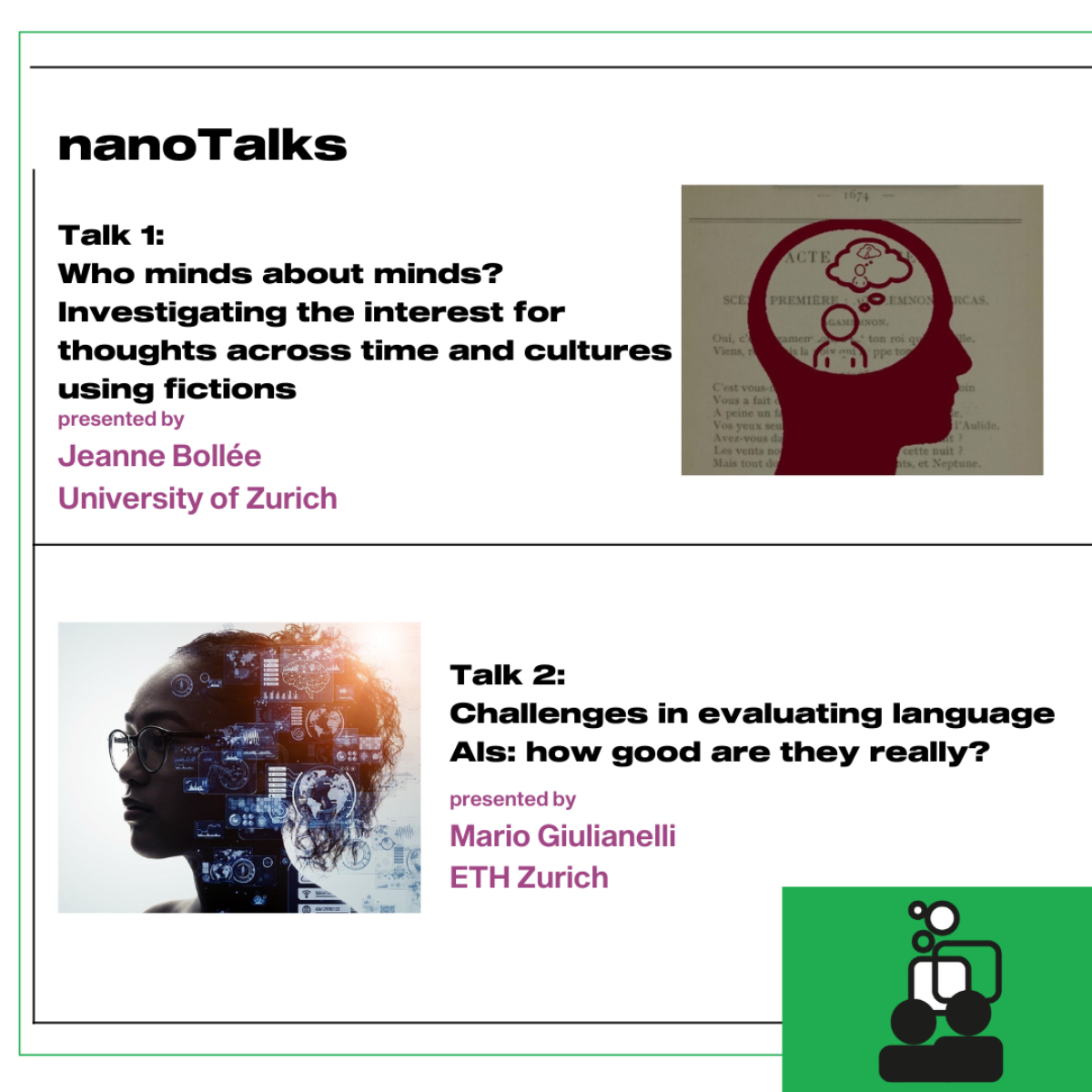
nanoTalks: Language and Cognition
Discover how these «cognitive fossils» unearthed by Bollée's research shed light on our psychology's evolution and its adaptability across cultures. Plus, unravel the intricacies of evaluating cutting-edge language AI models and the pressing need to balance their capabilities in novel scenarios at the forefront of AI advancement. Don't miss this thought-provoking discourse on societal minds and the evolving landscape of artificial intelligence!
30.11.2023
Universtität Irchel, Room Y03G85
max. 100

max. 100
Talk 1: Who minds about minds? Investigating the interest for thoughts across time and cultures using fictions
Presented by Jeanne Bollée, MSc in Department of Evolutionary Anthropology, UZH
Anthropological records, cross-cultural psychology experiments and literary studies point out that not all societies care as much about minds as the Western rich, urban and industrial populations. Have we grown more and more mind-minded and why? Which societies do care and which ones do less? These are the questions the researcher tried to answer using fictions, especially two types: theatre plays spanning two centuries in France and England and folktales from over 90 societies, mostly small-scale, from all around the world. Jeanne Bollée will explain her research question and the tentative answers she brought but also why these materials constitute precious «cognitive fossils» left by humans from ancient or recent epochs and how it helps and will help understanding our psychology and its plasticity.
Talk 2: Challenges in evaluating language AIs: how good are they really?
Presented by Mario Giulianelli, Postdoc at Department of Computer Science, ETH
Large language models are the core AI technology behind modern search engines, translation systems, and chat interfaces like Grok or ChatGPT. As these language AIs mimic human behaviour ever more closely, the key focus in their evaluation shifts to generalisation: the ability of a cognitive system—biological or artificial—to effectively apply learned knowledge, skills, and strategies in novel scenarios. Addressing this evaluation challenge has never been more time critical: how do we navigate the fine line between underestimation and overestimation of AI capabilities?
Image Sources:
1: BNF
2: metamorworks, Getty Images